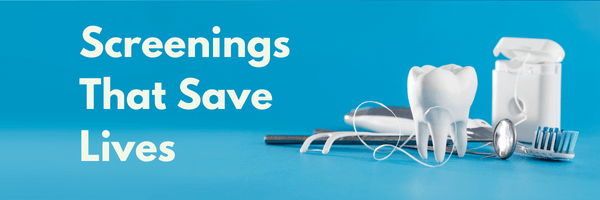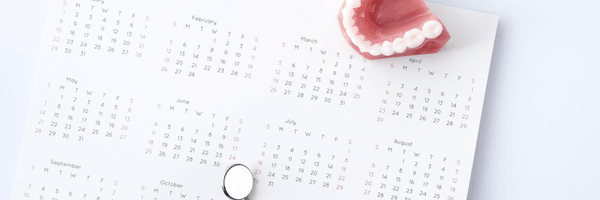
What Dental Clinicians & Employers Need to Know About the Latest Covid-19 Safety Standards
Posted October 08, 2021
COVID-19 has posed an unprecedented challenge to the compliance industry. Never in the history of OSHA have we seen anything like COVID-19, and in the beginning stages of this pandemic, there was just as much disinformation as correct information. With the guidelines, standards, executive orders, and mandates changing over the last two years, it has not been easy for everyone in the dental community to stay on top of it.
As an OSHA consultant to dental practices, I regularly receive questions from dental practice owners and managers. I thought you might like to know the answers I give to frequent questions. The answers are not my opinions; they come from properly vetted sources (OSHA/ADA/CDC) and are current as of September 2021.
As a reminder, dental healthcare personnel are licensed by their state regulatory body and should practice according to their state dental practice acts or other relevant regulations.
Is Your Dental Practice Current on OSHA’s Emergency Temporary Standard?
OSHA’s Emergency Temporary Standard (ETS CFR 1910.502) is still in place. I am often asked, “How do I make sure I am in compliance with OSHA’s Emergency Temporary Standard?”
- Forms: Be sure to complete a COVID-19 Healthcare Worksite Checklist & Employee Job Hazard Analysis. This form is available on OSHA’s website. It takes about 30 minutes to complete, and once done, you place it in your OSHA binder.
- Signage: Every dental office front door must display a COVID-19 symptoms checklist with instructions to call the office to reschedule if the individual has symptoms. The office phone number must be prominent.
- Prescreening: All individuals (including staff, patients, and vendors) who enter your office must be prescreened for COVID-19 and have their temperature taken with the exclusion of a mail person or delivery person who spends less than a couple of minutes in the office.
- Reception area: A splash shield to separate patients from your front desk team members is not mandated. If you have one, I recommend keeping it in place for added protection.
Dental Workers Should Continue to Practice Aerosol Precautions
The CDC’s Summary of CDC COVID-19 Guidance for Dental Services (Updated July 13, 2021) advises dental healthcare personnel to continue avoiding aerosol-generating procedures for patients with suspected or confirmed SARS-CoV-2 infection if possible, and dental healthcare personnel should continue to practice universal precautions for all patients, even those without symptoms.
All Dental Workers Should Wear Face Masks
Numerous PPE questions continue to arrive in my inbox. All team members, even those at the front desk, should wear face masks. A level 2 or level 3 surgical mask is acceptable, and the efficacy of these masks has been supported by a Temple University study.
6 Common PPE Questions from Dental Employers and Workers
- Do I have to supply KN-95 or N95 respirators to my staff?
No, but KN-95 and N95 are recommended. As of July of 2021, all respirators you use must be NIOSH approved. So, when choosing level 2 or level 3 surgical masks, check that they are NIOSH approved. - Do I have to have my employees fit tested and medically evaluated if we use KN-95 or N95 respirators?
No, you do not, because you are voluntarily providing those types of respirators. See Appendix D of OSHA standard 1019.134 (Mandatory Information for Employees Using Respirators When Not Required Under Standard e-CFR). - Do I have to keep an inventory of my PPE?
Yes, a simple logbook or sheet of paper will do. You can keep it updated in your OSHA binder. - Do I have to change my disposable gown after every patient?
The answer is no. However, it must be changed if it becomes visibly contaminated or at the end of a shift. - Do I need specific training for PPE?
No, because the PPE training you need (how to put on and take off PPE) is in your updated bloodborne pathogens training required by law. - May an employee sign a waiver if they don’t want to use PPE?
No, they may not.
Questions About Dental Worker COVID-19 Vaccination
The answers to both these questions are a matter of HIPAA and state law.
Can I mandate that my employees get vaccinated?
The answer is likely yes for those employees who have direct patient contact in the operatory. If an employee refuses a required vaccination, the practice owner can ask the reason(s) for the objection, and the employee should provide any supporting documentation. If an employee resists vaccination for non-disability-related or nonreligious, personal reasons, you might want to discuss whether an accommodation is still reasonable under the circumstances. If the practice owner disagrees, the employer may terminate the employee. For more details, see COVID-19 Vaccines in the Dental Workplace: FAQs for Practice Owners (ada.org)
Can I tell patients if my staff members are vaccinated?
Your employees’ personal health information is protected by HIPAA, in just the same way as your patients’ health information. Practices should not reveal who has or has not been vaccinated but can state something to the effect of “those who have been able to receive the full vaccine regimen have done so.” If the entire practice staff has been vaccinated, you are generally free to answer “yes” if a patient asks.
What if an employee tests positive for COVID-19?
You do not need to close the dental office if an employee tests positive for COVID-19, because their PPE protects them.
If the employee is asymptomatic, they should quarantine ten days from the date they are tested positive. If the employee has symptoms, they should quarantine at least ten days after the symptoms first appeared, plus at least 24 hours have passed since the last fever (without fever-reducing medications), coughing, and shortness of breath.
Are you a dental worker or employer with additional questions? If so, speak with your OSHA Compliance Advisor.
OSHA can issue a citation for any workplace scenario which they feel puts an employee in harm’s way by using the General Duty Clause from the OSHA Act of 1970. If you have additional questions or have concerns about exceptions, you are encouraged to talk with your OSHA compliance advisor, who will be happy to assist you.
In my OSHA and HIPAA compliance practice, my clients have direct access to me for help and clarification when needed. For the sake of my clients and their patients, in answering their questions, I always err on the side of caution.
We connect and educate more than 900,000 job seekers in the U.S. and Canada to build better places to work through teams that excel.




.png)




.png)
